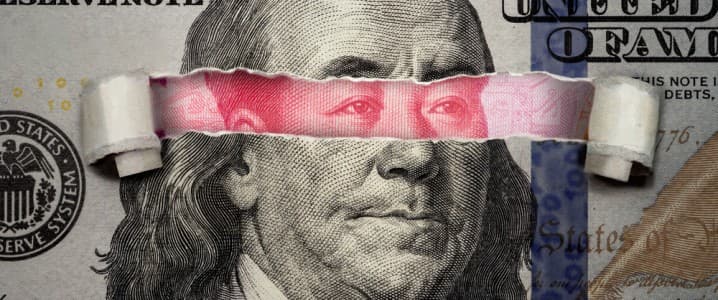Iraq Bans USD Transactions
The Iraqi Ministry of the Interior issued a ban on U.S. dollars making it a crime for citizens to buy or sell things with U.S. dollars anywhere in the country. Iraq is one of the 24 countries that have expressed interest in joining the BRICS group and using the new currency for international trade.
Early this week, the Iraqi government said that no one could start a business deal with the U.S. dollar. Iraq wants to stop the changing exchange rate on the black market, which has been a problem for a long time.
Less Reliance on U.S. Dollars, Crimes to be Punished
The change is also meant to make it easier for people to use the Iraqi Dinar on the foreign exchange markets of other countries. The goal of the Ministry is to close the gap between the government’s official exchange rate and the rate that is doing well on the black market. The move will make the country less reliant on the U.S. dollar and help the Iraqi Dinar.
“The dinar is the national currency in Iraq. Your commitment to transact in it instead of foreign currencies boosts the country’s sovereignty and economy,” the statement said. The Ministry also said that if this isn’t done, it will lead to crimes that can be punished. The law states that anyone who tries to hurt the Iraqi Dinar or the economy must answer for it.
General Hussein Al Tamimi, the head of the operation department, said that people who break the law would be fined one million Iraqi Dinars. Also, repeat criminals will get harsher punishments, such as a doubled fine and a year in jail.
“If the violator repeats it, he will face an imprisonment penalty of up to one year plus a one-million Iraqi dinar financial fine. In case of a third violation, that penalty will be doubled and we’ll have the business license turned.”












